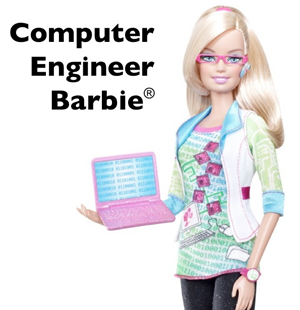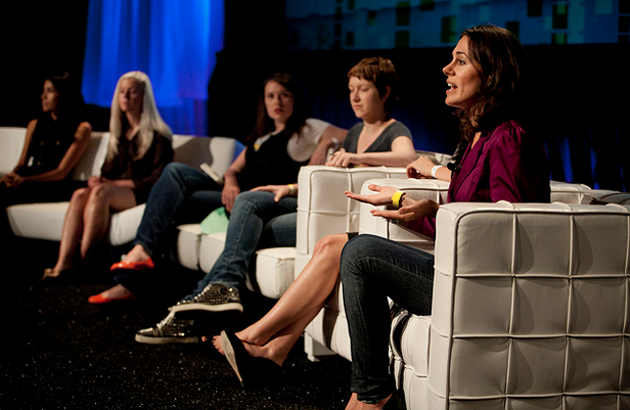 Women in tech, the song that never ends … Somebody realizes that the ratio of women versus men in tech is 20 to 80 and decides to write a blog post blaming something or other or in the case of Mediaite’s Rachel Sklar, writing a piece in the WSJ calling out TechCrunch founder Mike Arrington for the lack of women in tech, to which he responded.
Women in tech, the song that never ends … Somebody realizes that the ratio of women versus men in tech is 20 to 80 and decides to write a blog post blaming something or other or in the case of Mediaite’s Rachel Sklar, writing a piece in the WSJ calling out TechCrunch founder Mike Arrington for the lack of women in tech, to which he responded.
This led to a stand alone “Women In Tech” panel being added to program here at TechCrunch Disrupt, with speakers BNTR Founder Lauren Leto, Samasource founder Leila Chirayath Janah, Girl Developer founder Sara Chipps, Zivity founder Cyan Banister, Mediate’s Rachel Sklar and Michelle Greer, moderated by our own Sarah Lacy.
Much like the VC panel, the “Women In Tech” panel was full of strife and awkwardness, bifurcating into arguments about NYC vs. Silicon Valley and 23-year-olds versus 37-year-olds, etc.
Lacy started the panel emphasizing the fact that “there’s no women in tech” isn’t news, directly countering the premise of Rachel Sklar’s “Change the ratio.” Let me save you a recap of a lot of the bitching. Basically there’s one female contingent that thinks the lack of female startup founders is due to lack of awareness of the lack female startup founders and there’s another female contingent that thinks that the lack of female startup founders is due to the fact that women do not start up startups. Whew!

What most of the women on the panel could agree on however was that none of them actually wanted to be on the panel, “I don’t believe in a all-women panel and putting people on stage unless it’s merit driven,” said Banister, “I’ve seen nothing but red carpets in our industry.”
Chipps also debated the necessity of the panel: “As a developer I’ve gotten so much assistance from the men out there.”
Sklar was perhaps the only dissenting voice, “There’s benefit to including women in everything.” You can’t really argue with that.
Chirayath Janah implied that the premise behind the panel, was a rich people problem, “We have greater things to do deal with than ‘Why aren’t women covered in TechCrunch?'” (Ed note: For the record, women are covered in TechCrunch. A lot.)
Leto’s take, “Maybe next year we can name this panel something specific, like ‘Solutions That Work For Getting More Women Into Tech.'”
Greer, who had a negative experience with commenters on the original “Too Few Women In Tech? Stop Blaming The Men” article, shared her somewhat meta perspective, “We’re on a panel for a blog that just got acquired for a bunch of money, that is run by a woman. [TechCrunch CEO] Heather Harde is proof that we can be successful too.”
Basically reasons for why there isn’t more women in our industry are well-known and much discussed, primarily the lack of role models for women who are interested in tech.
How many TV programs and movies have key protagonists who are engineers, let alone women engineers?
Said Sarah Chipps, “It’s tough for guys, too; this isn’t an easy industry.” Word.